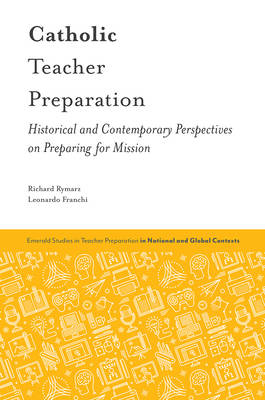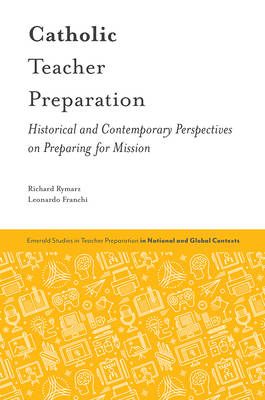
- Afhalen na 1 uur in een winkel met voorraad
- Gratis thuislevering in België vanaf € 30
- Ruim aanbod met 7 miljoen producten
- Afhalen na 1 uur in een winkel met voorraad
- Gratis thuislevering in België vanaf € 30
- Ruim aanbod met 7 miljoen producten
Zoeken
Catholic Teacher Preparation
Historical and Contemporary Perspectives on Preparing for Mission
Richard Rymarz, Leonardo Franchi
€ 169,45
+ 338 punten
Omschrijving
The expectations of the Catholic Church and the demands of the state are a precarious balancing act that have been apparent throughout the history of Catholic education. It is a relationship that is under scrutiny, even in the contemporary context. Drawing on the works and lives of key figures in the history of teacher preparation in Catholic education internationally, this important text illuminates the contributions they made and the challenges they faced. In providing this rich historical synthesis, the authors invite further reflection on the most appropriate methods of teacher preparation for contemporary Catholic schools and on possible contributions to wider teacher preparation from cogitating the history of the Catholic tradition. This book addresses teacher preparation for Catholic schools at both the 'pre-service' and 'in-service' levels by looking at the Church and its relationship with the state. The former will allow opportunities for a deep study of the role of 'faith' in Teacher Preparation, while the latter focuses on how a distinctive faith-based model of education can be in dialogue with the expectations of civil society. By using this multi-layered framework, the book offers exciting and innovative opportunities to inform contemporary practice from international examples, proving an invaluable text for researchers in the fields of comparative education, theology and the sociology of religion.
Specificaties
Betrokkenen
- Auteur(s):
- Uitgeverij:
Inhoud
- Aantal bladzijden:
- 175
- Taal:
- Engels
- Reeks:
Eigenschappen
- Productcode (EAN):
- 9781787560079
- Verschijningsdatum:
- 16/09/2019
- Uitvoering:
- Hardcover
- Formaat:
- Genaaid
- Afmetingen:
- 157 mm x 229 mm
- Gewicht:
- 340 g

Alleen bij Standaard Boekhandel
+ 338 punten op je klantenkaart van Standaard Boekhandel
Beoordelingen
We publiceren alleen reviews die voldoen aan de voorwaarden voor reviews. Bekijk onze voorwaarden voor reviews.








